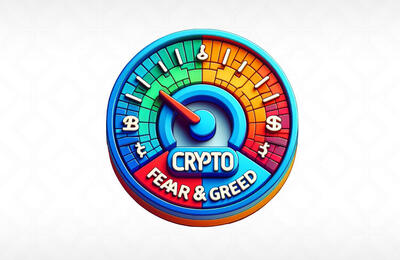
The developing revenue, reception, and interest in digital money, likewise called crypto for short, has numerous financial backers inquisitive about getting into the game.
The 'game' being an expression for investment trading and not the 'game' as in Everygame casino bonus. This guide for beginners will explain the definition of cryptocurrency as an asset class and the fundamentals of investing in it.
Learn about the various types of cryptocurrency, what to think about before investing, and specifics to help you decide if it belongs in your portfolio. You will also find a step-by-step guide to getting started if you decide you are ready to start investing in cryptocurrencies.
What is Cryptocurrency?
Like cash, cryptocurrency is a form of virtual currency that can be used to make purchases. Like other investment assets, it can be purchased with the intention of receiving a financial return and serves as an additional investment option.
Having said that, cryptocurrency is one of the asset classes that is one of the most volatile—that is, it has significant price swings. Participating in this revolutionary technology and its expanding applications can be accomplished through long-term cryptocurrency investments rather than speculative trading.
Although it is impossible to foretell the future, it appears certain that cryptocurrency and its underlying technologies will become more commonplace.
However, Stash Chief Investment Officer Douglas Feldman asserts, “The road to this future state where crypto usage is part of our everyday lives will continue to be very bumpy”.
Cryptocurrencies, in contrast to the majority of forms of currency, are decentralized—that is, they are not issued, backed, or regulated by a centralized authority like the United States government. “This decentralization idea is an important feature of its design”, according to Feldman.
Units of digital money, known as coins or tokens, are made carefully through an approval cycle that depends on the blockchain, a strong innovation that can be utilized in a huge range of cycles, not only for crypto. Blockchain, also known as distributed ledger technology, creates a safe, encrypted record of each virtual coin’s value and its transactions. Those records are circulated and connected across the organization of gatherings, or PCs, getting to the blockchain.
In theory, anyone with an internet connection can access the blockchain. With speed, accuracy, transparency, and security in mind, this system was built.
Types of Cryptocurrencies
Although the term “cryptocurrency” itself refers to a variety of virtual currencies that utilize blockchain technology, more than 24,000 as of May 2023, CoinMarketCap claims. One of the earliest and most well-known cryptocurrencies was Bitcoin. Aggregately, any remaining coin-based cryptographic forms of money are classified “altcoin”, or option to bitcoin.
In recent years, a number of cryptocurrencies have gained prominence, established large user and investor bases, and amassed significant market value.
10 Types of Cryptocurrency (as of now)
- Bitcoin
- Ethereum
- Tether
- BNB
- USDC (US Dollar Coin)
- XRP
- Cardano
- Dogecoin
- Solana
- Polygon
Due to the newness of the cryptocurrency ecosystem and the young nature of many cryptocurrencies, it is difficult to predict which coins will achieve the greatest success.
Despite being among the largest coins, these still carry risk. Investment loss is a real and significant possibility.
For instance, areas of strength for following in 2021, the worth of most digital currencies fell emphatically in 2022. Before making an investment, it is crucial to familiarize yourself with each cryptocurrency and determine whether it makes sense for you to do so.
What To Consider While Investing in Cryptocurrency?
If you don’t like taking risks, cryptocurrency can be highly volatile, with large swings in value over short periods of time. Keep in mind that anyone can start a cryptocurrency and that the way it is regulated is changing, so if you want to stay away from scams, you need to thoroughly investigate any potential investments.
You may likewise find it accommodating to consider the reason why you need to put resources into crypto. Do you intend to profit from a trend or have a well-thought-out strategy in mind? Feldman suggests, “Never put resources into anything with the conviction that you can’t lose.
There is no easy way to make a lot of money without taking any risks. You ought to possibly put resources into a cryptographic money on the off chance that you put stock in its drawn-out possibilities and will retain enormous cost swings”.
Feldman adds, “While cryptocurrency may be a powerful long-term investment opportunity, it may be wise to use caution and be clear about your intentions and expectations before diving in”.
As a consideration for investors, “Keeping a long-term perspective in mind is crucial when investing. This is especially true for assets like cryptocurrencies that can move quickly up or down. While putting resources into exceptionally unpredictable resources, it’s not difficult to pursue the mix-up of sincerely determined choices, for example, purchasing when the cost is ascending in apprehension about passing up a major opportunity or selling out when costs go down. Usually, these are not good ways to invest”.
Is Cryptocurrency a Good Investment?
There are a lot of variables to consider when deciding whether or not to invest in cryptocurrency. The answer is dependent on a number of factors, including your time horizon, financial and psychological risk tolerance, portfolio diversification, and your tolerance for risk. Because of crypto’s high degree of volatility, the value of your coins can fluctuate rapidly and even dramatically.
A tradeable asset does not necessarily indicate that it is a suitable investment for your circumstances. Additionally, as was previously mentioned, there is always the possibility of losing money when investing.
Pros of Cryptocurrency
— Before 2022, the cost of digital forms of money were not profoundly corresponded to other speculation classes, similar to stocks and securities, so having a little openness to this possibly high-development space might further develop risk-changed returns. While relationships among’s digital forms of money and other resource classes were high in 2022, it’s hazy on the off chance that this is a recent fad.
— A few specialists look at certain cryptos, like Bitcoin, to gold: both are fungible and sturdy since they are difficult to obliterate, scant because of limited supply, and their buying power isn’t characterized by any focal power.
— On account of the decentralization and straightforwardness of the circulated record, compromising the organization's honesty behind cryptocurrencies is troublesome.













